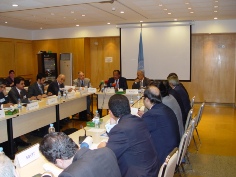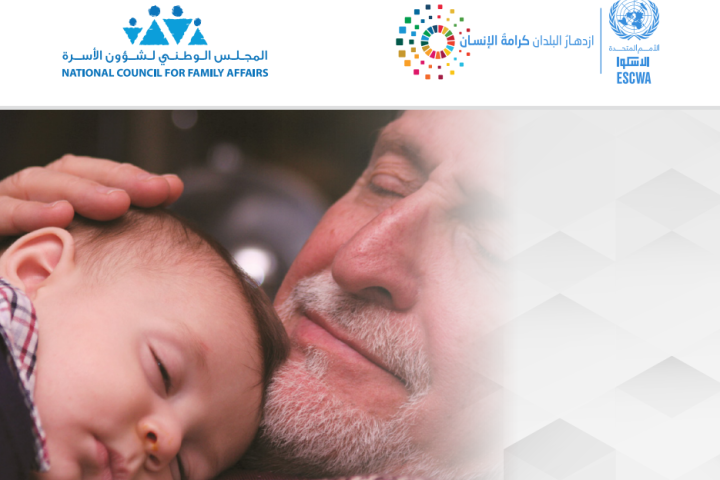UN-ESCWA Executive Secretary, Bader Omar AlDafa called on member countries to participate in theFollow-up International Conference on Financing for Development to Review the Implementation of the Monterrey Consensus to be held in Doha towards the end of November. AlDafa stressed the importance of a high-level representation of these countries, which will "voice a unified stand that clearly portrays their development priorities, namely in view of the big-scale developments saddling the world on the financial level, and which may bring about averse consequences on available resources to finance development".
AlDafa was speaking at the inaugural session of the Second UN-ESCWA Technical Committee meeting, held on Monday 3 November 2008 at the UN House, Beirut. The meeting was attended by a quorum of Ambassadors of member countries (Bahrain, Egypt, Iraq, Jordan, Kuwait, Lebanon, Oman, Palestine, Qatar, Saudi Arabia, Syria, the Sudan, the United Arab Emirates, and Yemen), as well as senior representatives.
AlDafa pointed that the agenda of the second meeting of the Technical Committee includes a number of varied and important issues, such as the work plan for the biennium 2010-2011, and also the activities that the Commission prepared according to the available budget and the priorities set by member countries in several areas, such as natural resources, climate change, integrated social policy, economic development, financing for development, information and communication technology, statistics, woman empowerment, and development projects under conflict. The committee will also look into a proposal for a regional conference for Western Asia in preparation for the 2009 Annual Ministerial Review of the Economic and Social Council (ECOSOC): Implementing the internationally agreed goals and commitments in regard to "global public health".
Alongside AlDafa, the inaugural session also witnessed a statement by Muhammad Ahmad Hawiri, Deputy Minister in the Yemeni Ministry of the Planning and Technical Cooperation- Department of Economic Studies and Forecast.
In his address, Hawiri praised UN-ESCWA development efforts at the service of member countries, saying the second meeting of the Technical Committee comes within "exceptional regional and international conditions, which were the successive crises, beginning with the food and energy crisis, followed by the world financial crisis that is leaving repercussions in the financing and credit sectors… this crisis is likely to continue in the foreseeable future and poses new challenges that require the international community and functioning organizations to look into rules and mechanisms more stable, that could protect the economies of developing countries from these shocks". He said that the agenda of the Technical Committee meeting comprises many important and vital issues, regarding the coordination mechanism to achieve the Millennium Development Goals (MDGs), mobilizing resources that enable UN-ESCWA and member countries to meet challenges at hand, financing for development, and energy and water resources.
Technical Committee
The Technical Committee was established pursuant to the decision of the UN-ESCWA 24th session and with the aim of enhancing interaction and close consultation between the members of the Commission and its secretariat on substantive development issues. The sessions of the Technical Committee are held every six months, starting January 2008, and its membership comprises high-level senior officials designated by the member governments of the Commission.
The Technical Committee provides advice and assistance to the secretariat in: drawing up proposals for the strategic framework, the programme of work and priorities, consistent with guidance provided by the Commission; following up on the implementation of Commission resolutions and any other outstanding matters that require action; following up the implementation of the programme of work and activities of the Commission, including the mobilization of extra-budgetary resources to support their implementation; and identifying emerging economic and social issues and other relevant priority issues for incorporation into the provisional agendas of the Commission sessions and the subsidiary intergovernmental Committees. The Technical Committee is also required to carry out any other tasks entrusted to it by the Commission.




